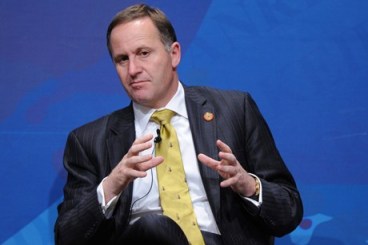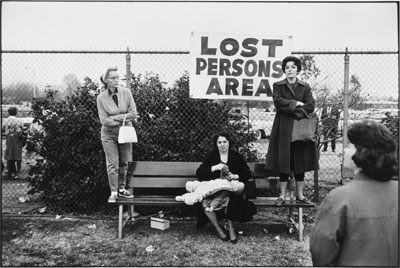Category: Paula Bennett
I am so sick of this obvious lie, pt 2
 Another obvious lie too many National supporters believe is that Labour are bad for employment (because they raise the minimum wage too fast), and National have “solved unemployment” (because they’ve made it harder to maintain benefits):
Another obvious lie too many National supporters believe is that Labour are bad for employment (because they raise the minimum wage too fast), and National have “solved unemployment” (because they’ve made it harder to maintain benefits):
Now, it is true that Labour raise the minimum wage much faster, and that National cut welfare (in a recession!). But the unemployment rates have been more like the other way around,* and anyone suggesting National are better than Labour at keeping unemployment down is either believing or promoting a lie.
Actually, it’s a couple of lies… but they’re both obviously bollocks to anyone who’s spent five minutes looking into them:
LIE 1:
“Raisng the minimum wage reduces jobs”
TRUTH 1:
As usual, Gordon Campbell says it best:
If, as Key claims, Treasury has done research that shows major job losses would result from gradual increases in the minimum wage, then this amazing information would be world news – because the vast weight of academic research around the world ever since the groundbreaking David Card/Alan Krueger work in the US fast food industry 20 years ago, is that it would do no such thing.
LIE 2:
“National have solved unemployment by making it harder to get the benefit”
TRUTH 2:
I’ve covered this before, and so have many others. Basically, kicking people off the dole (or DPB/invalid’s/sickness benefit) doesn’t magically put them into jobs; it just increases the number of people lacking either work or welfare (which has hit a record 110,000 since National’s bennie-bashing “reforms”). Creating a desperate unemployed person doesn’t create a job for them to go into.
This confusion arises from a basic failure to understand the difference between individual problems/solutions and socio-economic problems/solutions, as sociologist C. Wright Mills pointed out 55 years ago:
* It started to get bad under the Lange (& Douglas) Labour government, which was actually more like a Bolger/Key National government than a Labour one. Of course, just like with debt, things are more complicated than one graph could show.
PS: Graph and truncated y-axis from tradingeconomics.com; annotations mine.
Voting National is not compatible with caring about climate change. Full-stop.
Generation Zero have just released an article suggesting “You can do Both … Vote Centre-Right [and] Care About Climate Change.”
They offer three ways this is supposedly possible… in reverse order:
3) Don’t Vote for ACT or the Conservatives (which is true, but kind of like saying if you care about people, don’t murder anyone)
2) Consider party voting United Future, Maori or New Zealand First (OK, those parties do/will prevent some of National’s most extreme policies, but you’re still actively blocking the possibility of a Prime Minister who’s actually sure he believes in climate change)
And worst of all:
1) Vote for National but make it clear that you care about climate change (Sorry, No.)
They seem to have forgotten their own previous release about how Bill English (deputy PM and the guy basically in charge of everything except selfies and smear campaigns) thinks climate change is “a non-issue at the moment, because there are more pressing concerns,” and wants to adapt to climate change after the effects are felt rather than mitigate against it now.
If you doubt their anecdotal account, English later confirmed in Parliament that he did say it, and does think it. Besides, it’s entirely consistent with National’s record. They provide little more than lip service to climate change – and often not even that: they don’t even answer questions about it, including Generation Zero’s!
The truth is: If you want to vote centre-right and care about climate change, vote Green. In global and historical context the Greens and Labour are centre-right. (National are hard right and ACT have no place being mentioned in a blog with the word “centre” in the title).
However, it’s doubtful whether a “climate voter” can vote for any party that supports sustaining the capitalist system, given that capitalism is based on an unavoidably anti-environmental premise: that we can have infinite growth in a finite world. Sorry, that’s not possible, and neither is prioritising both Creation and Mammon.

Democracy is so 20th century
 John Key: New Zealand’s pre-eminent post-modernist
John Key: New Zealand’s pre-eminent post-modernist
The endless popularity of the Key government represents everything that’s wrong with post-modernism.
John Key is completely unphased by passé modern phenomena like expert opinions and statistics.
Statistics say he’s not fulfilling pledges to catch up to Australia, let alone those 170,000 jobs he promised … but Key is more interested in his own personal subjective experience of “many Australians” wanting him to “go over and be their Prime Minister”. Well shucks, when you put it that way, why are we wasting so much time and money on the drab modern rationality of statistics and research?
Experts highlight the racist undertones of Key’s constituency … but Key, ever the post-modern relativist, chimes in with the inexorable subjectivity of all truths that impact badly on his government: “Racism is subjective.” (Just like poverty is ‘merely relative‘).
Those pesky experts have been at it again this week… Current New Zealander of the Year Dame Anne Salmond joins the Law Society and the Human Rights Commission in raising alarm about the “assault upon the democratic rights of New Zealanders” that is the GCSB bill currently being rushed through Parliament.
Salmond says “When a body as authoritative and dispassionate as the Law Society feels forced to report to the United Nations that the Government in New Zealand is acting in conflict with the rule of law, all New Zealanders should be very worried.”
Don’t they realise that we enlightened post-moderns are skeptical of so-called experts, authority and dispassionateness?
John Key dismissed the Law Society like flies with a simple “I don’t agree.” His personal opinion is worth just as much as theirs!
And, like Paula Bennett before him, he’s given the Human Rights Commission the same treatment. Never mind that they’re worried enough to use their rarely used right to report directly to the Prime Minister. He doesn’t even care enough to note the difference between this report and a select committee submission!
In these post-modern times, the Human Rights Commission are just another bunch of irrelevant experts that can be safely ignored and even de-funded because Key and Co. know NZers won’t get off our couches about it.
I’ve said the popularity of this government represents what’s wrong with post-modernism. But Key’s cynical manipulation of post-modern subjectivity is only part of the problem.
The other side is the apathetic population who swallow this hollow ‘post-political’ ideology because we like his smile, or wish we too could go from Hollyford Ave to multi-millionairehood, or submit to the lazy self-fulfilling prophecy that we can’t change anything … or simply don’t care about anything beyond our personal experience as individual consumers.
As John Key himself said in 2007, “A quiet, obedient, and docile population; a culture of passivity and apathy; a meek acceptance of what politicians say and do – these things are not consistent with democracy.”
Sleepy Kiwis’ casual surrender of democracy is the chilling confirmation of this truism. We are turning Key’s words from a prophetic warning to a Machiavellian political strategy. And we will reap what we sow.
Well, from the information WE’RE seeing…

Have you noticed that every time someone confronts National with a statistic showing that things aren’t going well (it’s happening increasingly often), they have the same cryptic response? They feign disbelief, and reveal that according to “The figures I’ve seen,” or “the numbers [Key] had seen,” or “The advice his government had received,” or “some of the other indicators,” exactly the opposite is true!
Whatever this alternative information source is, it has such a powerful effect on the government that they were “very surprised” that unemployment rose again last month. According to the information available to the rest of us, of course, this is no surprise – it’s been rising all year. But apparently when you have “the information WE’RE seeing”, the job market is “jumpy” or “bouncy” or “grumpy” or some other anthropomorphic euphemism to render statistics, truth and accountability completely meaningless.
So, I’m really curious to know: What is this mysterious “information WE’RE seeing” that the government are getting their ideas from?
Or this?
Or these – National Party Pills?
The scorecard so far on child poverty
You’ve probably noticed there’s been a groundswell of awareness, dismay and outrage about child poverty lately, particularly since the Children’s Commissioner convened a panel of experts to come up with suggestions about how to solve it. This could be a great opportunity for this government to create a positive legacy by actually doing something in response to the countless statistics and stories of poverty emerging in New Zealand over the last twenty-five or thirty years.
In fact, if they wanted to, this government could actually do a lot more about child poverty than a Labour government could… they wouldn’t have to worry about a right-wing opposition lambasting them for nanny-state-taxpayer-money-wasting-social-engineering (well, except John Banks, when he turns up). They could take significant action, even expensive action, without damaging their political reputation – they may well improve it by showing a more compassionate face.
So, win-win, right? Well, let’s have a look at how they’ve responded so far to the main recommendations from the Expert Advisory group on child poverty…
“Six of the best ideas for change“ (Andrew Laxon, The New Zealand Herald 06/10/2012)
1. Free meals in schools
This was Mana policy in the last election; since then it’s become John Campbell’s hobby horse and Labour policy. Actually, I recently learned that John Key signalled support for measures like this in 2007, saying National would start organising businesses to fund meals in poor schools while in opposition, rather than waiting to be in government.
Now that they’re in government, Bill English, chair of the ministerial committee on poverty, has said that children are going hungry because they’re in “homes where there is not a strong sense of responsibility”; but that it’s the responsibility of the whole society to “do something about that”. It’s hard to know what this means; but he has signaled that he’s open to the idea of providing meals in schools. However, his press secretary hastened to add that “no new decisions have been made“. Both have been busily citing statistics to show that kids going without meals isn’t as widespread as we think, so I don’t think we should be too hopeful too soon.
2. A warrant of fitness for all rental housing
John Key hasn’t exactly embraced this wholeheartedly, but he hasn’t completely ruled it out, saying “There’s probably some limits to what Government can do but we may be able to encourage landlords to increase the quality of their property.” Bill English is arguably even more interested, though worried it will push housing prices up. Again, let’s wait and see… no ‘new decisions’ yet.
3. Every child enrolled with health and social services at birth
They’re actually doing some stuff along these lines, but only for beneficiaries. By not extending these “social obligations” to everyone, and by adding sanctions without increasing support or availability, they can’t avoid the suspicion that they’re more motivated by putting pressure on beneficiaries than helping children.
4. Universal child payment
We had something similar to this until 1991, and of course we still have universal payments to the elderly. It seems to be working, or at least helping people who need help the least – 10% of the elderly are below the poverty line, while 25% of children are (up from 4% and 10% respectively in 1986). A welfare expert who visited the country recently said that international research reveals a child payment to be one of three key factors in reducing child poverty. He insisted that it needs to be universal, because “Programmes that are targeted to the poor tend to end up being poor programmes”. John Key’s response? He dismissed the idea as “dopey“.
5. Pass on child support payments to beneficiary solo parents rather than withholding it to offset their benefit.
Bill English said that the expert group has made “a pretty strong case” for this, without necessarily committing to it; but Revenue minister Peter Dunne reckons they can’t afford it.
6. Poverty reduction targets to make politicians accountable
Paula Bennett won’t even measure child poverty, and Bill English is following suit by refusing to set targets to reduce it. He reckons it’s meaningless to measure child poverty, because he thinks we only have ‘relative’ poverty, and that ‘relative’ poverty is not real poverty. Those are a couple of huge assumptions, which I’ll discuss in my next blog a future blog, about the suggestion that there is no poverty in New Zealand.
Scorecard so far:
Policies: 0/6
Promises: 0/6
Vague and equivocal support, with a possibility of eventual action: 2.5/6
So, overall, it’s not looking good.
Particularly when we bear in mind that these are relatively conservative and non-partisan suggestions. That international welfare expert identified three key factors in reducing child poverty: increased parental employment and higher wages, along with the “dopey” universal child payment. The above recommendations are far gentler, and don’t require National to change their underlying philosophy at all – they could implement all of the above without having to actually create jobs or pay living wages.
Whatever they end up doing or not doing, this government’s response to child poverty will be one of its key legacies. It will also have a huge impact on thousands of young lives – for better or worse.

















